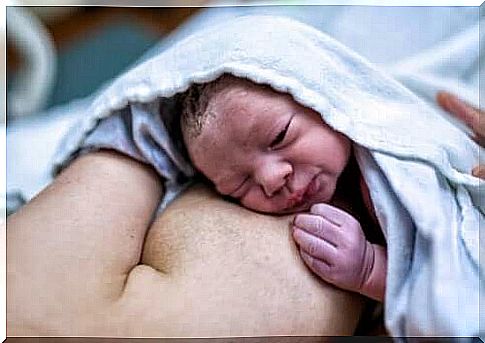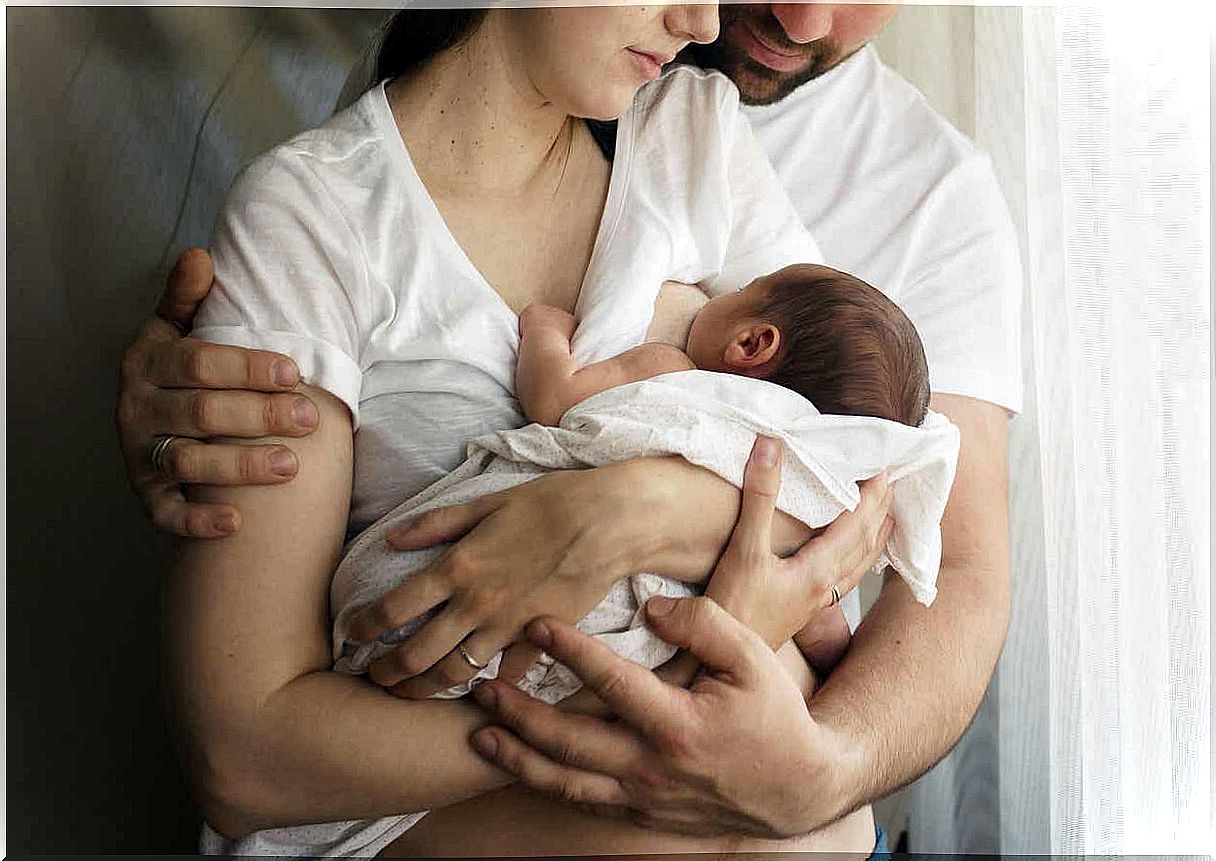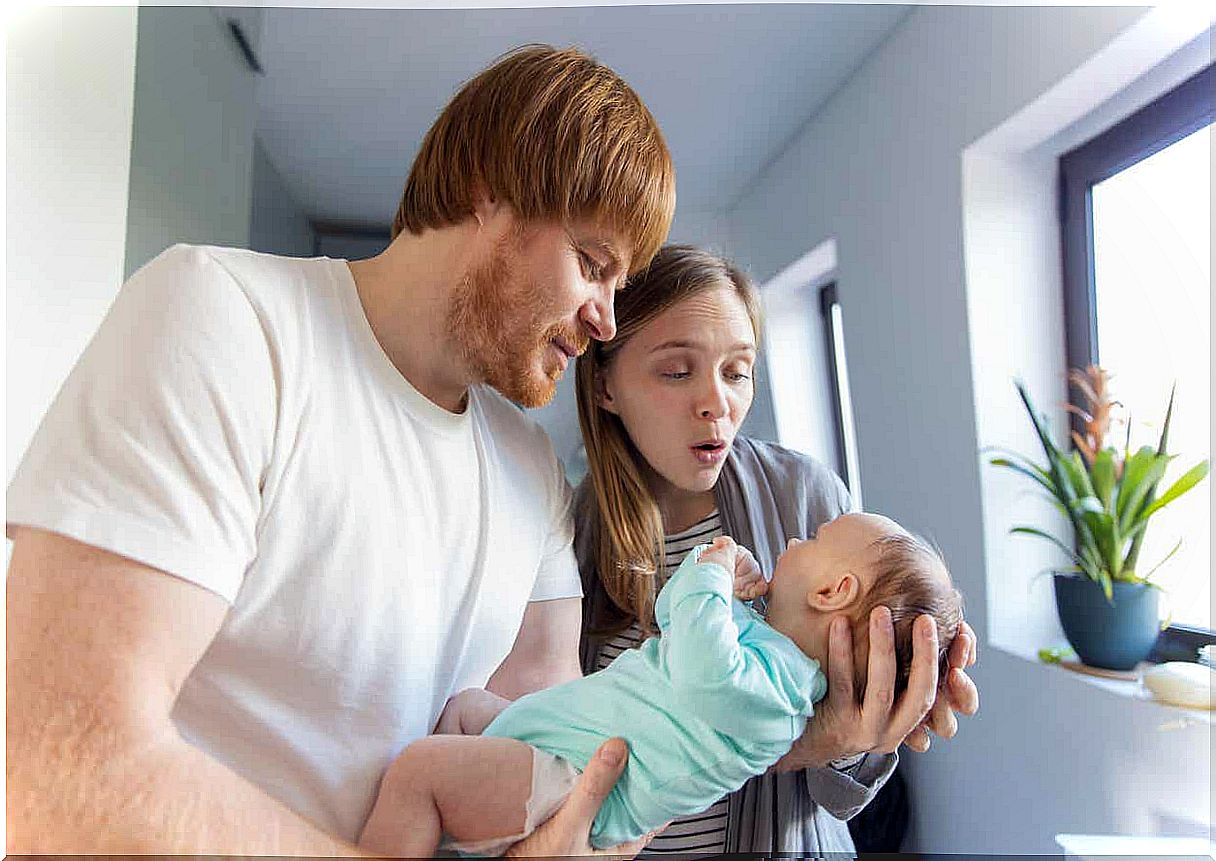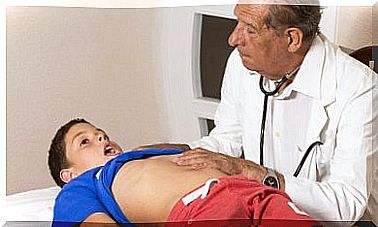The Development Of A Baby’s Stomach

The development of a baby’s stomach, during the prenatal and postnatal period, is very interesting. After babies are born, it is important to consider the size of this organ. It limits the amount of milk that babies can absorb.
What does the stomach do?
The stomach is a very important organ, which is part of the digestive system. It is located between the esophagus and the small intestine (duodenum). It also contains an acidic liquid, and its main function is to initiate the breakdown of some macronutrients, such as proteins and carbohydrates.
All the food we eat passes through the stomach, which aids digestion. Just as it happens with the rest of the organs, the size and capacity of the stomach gradually grow over time. And this is what we will talk about next.

The development of a baby’s stomach in the womb
As in the case of other body parts, the stomach arises from the foregut. In fact, part of the foregut dilates and forms a kind of sac, which after a few weeks becomes the stomach.
Once the digestive tract is completely permeable, it comes into contact with the amniotic fluid. Did you know that your baby is constantly drinking this liquid? In addition to the renal system, the integrity of this system relates to the development of certain diseases characterized by an increase or decrease in the aforementioned fluid (polyhydramnios and oligohydramnios, respectively).
The development of a baby’s stomach after birth
When babies are born after a full-term pregnancy (after the 37th week), their stomach is believed to be ready to function properly. There is a lot of emphasis on starting breastfeeding right after the baby is born (early bonding).
During the first days of life, a baby’s stomach can be the size of a cherry or a nut. Therefore, they will not be able to consume large amounts of milk. Once babies are one month old, their stomachs can grow to be the size of a tennis ball or an egg.
From a functional point of view, and as in the case of other organs, the stomach may not be fully prepared during the baby’s first days of life. The correct release of enzymes, proteins and hydrochloric acid can take several days.
How much milk should I give my baby?
It makes a lot of sense to think that if a baby’s stomach is the size of a cherry during the first days of life, they won’t be able to get all the milk your breasts will produce. However, this is not entirely true, as milk does not stay in the stomach for long.
That’s why you should be familiar with the concept of breastfeeding on demand . In fact, babies will self-express their need to be fed (usually crying), which can happen every few hours. As time goes by, they will adjust their eating habits depending on their physical and social context.
Should I try giving more milk or a different type of food?
Unless your pediatrician tells you to feed them a different type of food, babies usually don’t need anything but breast milk. This is because breast milk contains the most important macro and micronutrients that your baby needs. In addition, breast milk contains antibodies that can protect children from infection while their immune system develops.

If you think your baby isn’t drinking enough milk compared to the amount you’re producing, don’t worry. It is important that they drink small amounts of milk several times a day. In addition, in the first weeks they should gain weight and increase in size.
However, if you pay attention to these details and still think your baby has an eating problem, see a pediatrician as soon as possible. Sometimes certain problems at birth are ignored. So remember that it is always better to identify any kind of irregularity.
The stomach, a very important organ
It is clear that the stomach is very important for the proper growth and development of your child. This is why midwives monitor the condition during prenatal visits. And that is why unexpected problems are not very common once the baby is born. However, if you think your baby has an eating problem, tell your doctor.









